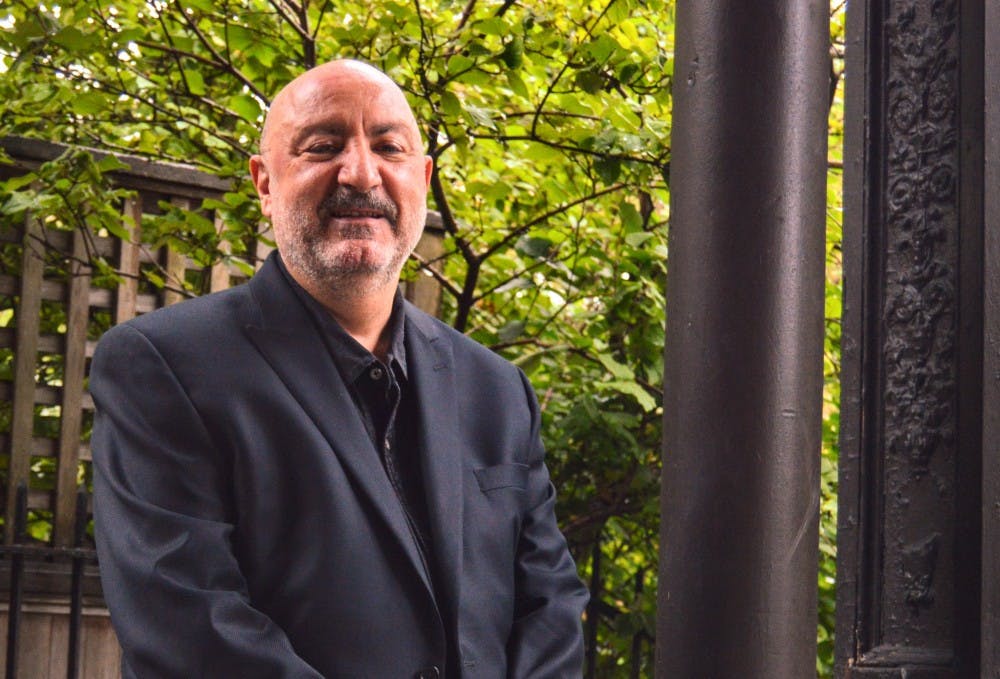Everyone’s a critic, and so is Anthony DeCurtis. A longstanding contributor for Rolling Stone magazine, a distinguished lecturer for Penn’s creative writing program, and a diehard rock and roll fan, DeCurtis has found a way to fuse his greatest passions into a lifetime career.
“I’d been into rock 'n' roll since I was a kid. I always loved it, always responded to it,” DeCurtis says. “When I was growing up, rock criticism was essentially invented. The start of Rolling Stone magazine became really important in that regard.”
Growing up amid the chaos of New York City, DeCurtis discovered a love for both music and writing at an early age. After receiving his PhD in American literature at Indiana University, DeCurtis began hunting for any job that would take him and learned to persist through the eminent struggles of becoming a published writer.
“As far as Rolling Stone is concerned, I did the thing that is never supposed to work,” DeCurtis says. “I wrote a letter out of the blue with an idea I had, no clips or anything, just the letter. They gave me back an assignment of writing a concert review, and that was the beginning of that relationship.”
Working in the office of Rolling Stone magazine full–time from 1986 to 1995, DeCurtis dealt firsthand with the pressing demands of a national publisher. “Occasionally people will ask me what the biggest misconception would be about working at Rolling Stone, and I would say it would be how hard everyone worked,” he says. “It was a lot to do, putting out a big fat magazine every two weeks. There were a lot of them, they had to be done quickly, and they had to be done well.”
But despite the high level of pressure of his journalistic activities, Rolling Stone gave DeCurtis the unique opportunity to interview some of America’s greatest rock 'n' roll legends, from Paul McCartney to Leonard Cohen.
“It was extremely exciting. I was working in a time when magazines were just extremely important. If you were walking down Sixth Avenue at that time, you would past one newsstand after another and see an entire row of just your cover prominently placed.” he says. Writing cover stories for music icons ranging from Keith Richards of The Rolling Stones to U2, DeCurtis’s career became the fulfillment of a lifelong dream to meet and write about many artists that had served as childhood inspirations.
Beyond interviewing celebrities for Rolling Stone and even freelancing for The New York Times, DeCurtis has also found the time to publish multiple books, from collections of his own works to biographies of other artists. He collaborated with Clive Davis on his autobiography, which was a New York Times Bestseller, and recently published a biography about Lou Reed. DeCurtis even won a Grammy award for his essay on Eric Clapton’s Crossroads in the category “Best Album Notes.”
“To write well about music, I think you just have to listen carefully, think about it, and respond to it,” DeCurtis says. “The worst critics are people who have preconceptions about what things are supposed to be. You need to listen to the thing itself and then make a conclusion about it.”
DeCurtis emphasizes the power of a strong writing ethic and a foundational knowledge of such in the world of criticism as key to good music journalism.
“One of the hardest parts with writing about music is finding a language to describe the ideas. The very nature of it is that its ephemeral; it’s a sound, it happens, and it goes away. But you have to find a language that captures that and conveys it to people,” DeCurtis says. “The more that you work at those things, the better you get at it and the more successful a critic you are.”
After meeting David Wallace, a fellow professor in the English department at the University of Pennsylvania, DeCurtis was soon invited to teach his own writing course titled “The Arts and Popular Culture.” Continuing to find ways to meld his love for the arts and for writing into one, DeCurtis’s class embodies the combined excitement of pop culture with the obtainment of fundamental writing skills.
“If someone is interested in the arts and writing about it, they’ll learn how to do it better. But it’s also fun,” he says. “It’s writing about the things that I think most students care about. I think you’ll learn how to think critically, how to write well about your ideas, and pick up some journalism tricks too, such as interviewing and profile writing.”
Bringing back former students who have gone on to work at places such as The Atlantic or The Washington Post, DeCurtis emphasizes the course’s primary purpose as not only benefiting students in the future, but also providing them with a course that is highly applicable to the present. “I am constantly struck by how fun and interesting and smart young people are,” he says.” I find it energizing to be around them. Now, when [former students] come back to visit, it’s profoundly rewarding. I love everything about what I do.”
Determined to make something out of his love for writing and music, DeCurtis’ experiences as an author, journalist, and professor have allowed him to share his passions with those around him while inspiring his students and his readers to do the same. If there is one thing to take away from DeCurtis, it is that the greatest rewards of all come from doing what you love.

